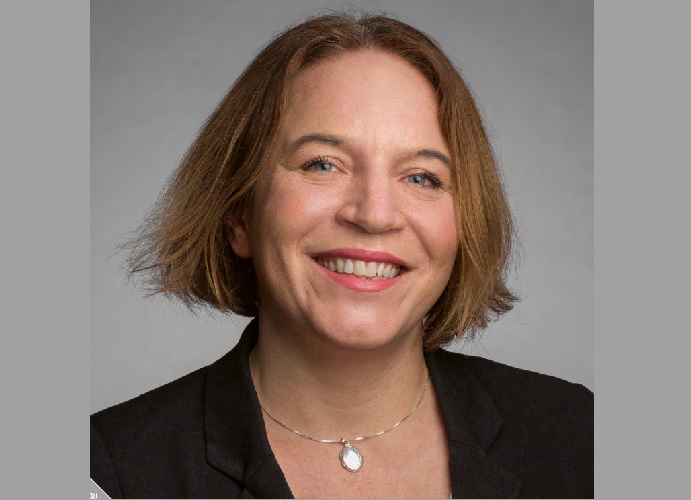Nynke Vlieger: A Plea for Humanity

An interview about a piece of social foundation in practice in Amsterdam. Nynke Vlieger has been the director-manager of Buurtteam Amsterdam Centrum for a year. Her career started in development cooperation. From the desire to better see and understand the impact of the work you do, she focused on the Netherlands. She went into the neighborhood, into the implementation, and came into contact with many people with debts. “I don’t think volunteers should be the answer to the lack of the welfare state.”
The text of this interview comes fromREAL, magazine National Volunteer Awards.
What difference do you make?
“I want to give a voice to people who don’t have a voice. And I really think I do that. I had a meeting this morning about youth. And then I realize that – to exaggerate a bit – I do give a voice to the ordinary person. And also for the people who do the work.”
Why is that important?
‘I think it is often overshadowed. Tim ‘S Jongers [de Correspondent, ed.] wrote a book ‘Insulting Broccoli’, about the gap between policy and reality. As a rule, policymakers are white, healthy people with a good income and satisfied with their lives. These are the people who have a lot of influence over the lives of those who are less fortunate. They do not consider that healthier food is more expensive. They don’t understand as well that when you have little money and a lot of stress, you crave chocolate. That you make short-term decisions. Also, because I had a difficult childhood, I can more easily relate to and empathize with others. I don’t judge quickly. I understand that you cannot exhibit logical behavior.’
What do the Neighborhood Teams do in Amsterdam? What is their role in Amsterdam society?
‘It’s the district teams for everyone above 18. It’s about psychosocial support. You don’t know the way to agencies and you need help. We also offer debt counseling. You can also receive support from us for a longer period, and we also visit people at home. It is closely related to the WMO, Social Support Act. One of our biggest challenges is the aging population, in Amsterdam Centrum there are many elderly people. Often they live on the third floor in buildings where little can be adapted. There are also many people with mental health issues and many homeless people. We deal a lot with confused behavior and people with autism. We are actually the non-medical general practitioner. You go to the doctor for physical problems. You come to us with social problems.’
What improvements would you like to see in the neighborhood teams? What are you passionate about working on?
‘What we see in the neighborhood is that the care crisis, which the media claims is looming, is already present in our neighborhood. I hear cases of elderly people walking around in diapers, lacking household help, lying on a small mattress, and deteriorating! Imagine what such a house looks like. It is very sad. The same goes for people with mental health issues. We see inequality increasing. The city center is a relatively affluent district but even there live people who have very little money. Almost half of the people we help have income from work, a job. The rest do not. What I find complicated is that fewer and fewer people trust the government. They also see us as part of the government. And that means they deny themselves the help they are entitled to. What also makes it challenging is that people end up with us due to failing healthcare. And I also have to ensure that everyone still wants to work for us. Those homeless people… we simply have no houses. So much is demanded of employees. And that is sometimes very heavy. I try to have the conversation and look at how we can work more efficiently. That is also good to do, but we must realize that the welfare state simply no longer exists. So we need to figure out together how we are going to do it.’
What does volunteering mean for someone’s personal network in your opinion?
“I don’t think volunteers should be the answer to the lack of the welfare state. We need to look at how we organize care to maintain the human aspect of it. That means doing something for someone else should actually be very normal. It would make a big difference if someone doesn’t mind doing groceries for an elderly person once a week. That would make the problem smaller. There would be someone keeping an eye on things. Laura Vermeulen obtained her doctorate on strengthening networks for people with dementia. According to her, a network consisting only of family is not optimal, because then all those ‘family things’ come into play. Mixed networks are much stronger because they complement each other. Volunteers provide that complement. Doing it yourself is the motto. I don’t understand why volunteering is not already a job requirement at all companies. Imagine if everyone spent two hours a week doing something for someone else, paid! That would solve a lot! The government really wants us to do everything ourselves. But they facilitate too little. They should be eager for companies to help with this. At the very least, civil servants should be able to do volunteer work in their boss’s time.”
So, do you think companies should actually become part of the social fabric?
‘Well, I think you should look at volunteering in a different way. In Rwanda, people are required to do one day of volunteering per month. This is known as ‘Umuganda’ and it’s just part of life. It has been a tool for connection since 1962. I think the principle that you simply have to do something for others is quite good. It’s just part of life, like paying taxes. I still believe in the goodness of people, but I still think that more people don’t do it than do.’
Do you see a deviation between the formulated social basis and reality?
‘Look, the social foundation is based on the strength that lies within people themselves. It aims to connect groups of people with each other. It is not so focused on the problem but more on participation. It is very essential. As a human, you need security, enough money, and connection with other people. My organization also has a major role in the social foundation. What I see when I look at money flows: billions go to curative care. And only a very small part of that goes to the social foundation. But people live in a neighborhood. Very little money goes towards keeping people healthy. The social foundation focuses on prevention and is therefore more complex to demonstrate its necessity.’


